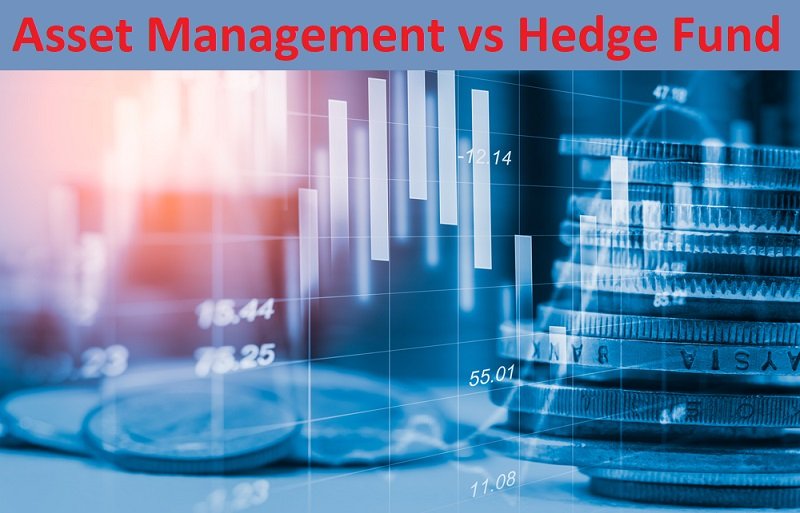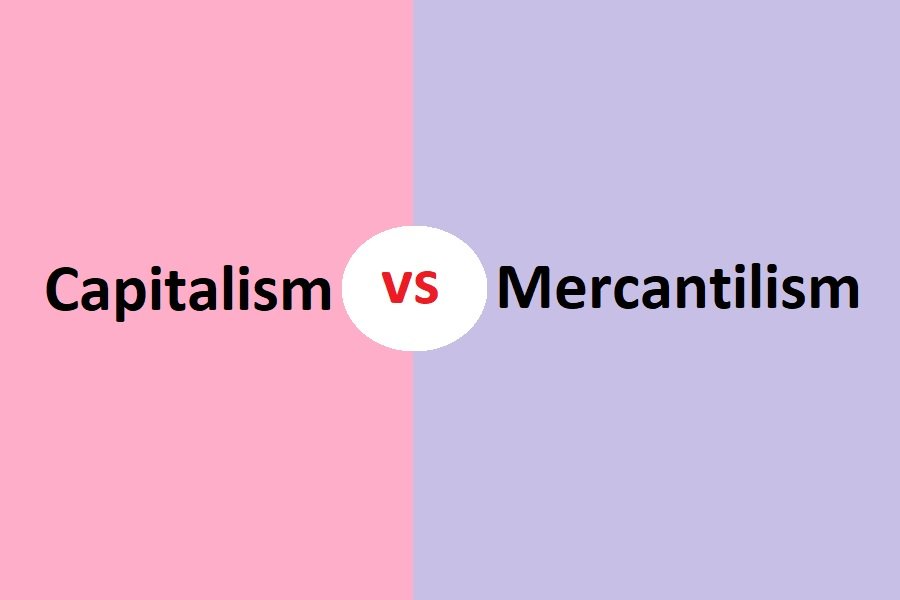Difference between Asset Management and Hedge Fund
There are many ways you can invest your money now, but we must say that hedge funds and asset management are two of the best and most popular options amongst all these options.
Due to their similarities, people often wonder what the differences between hedge funds and asset management are. By reading our asset management vs hedge fund comparison, you will understand which one would yield better results for you.
What Is a Hedge Fund?

Hedge funds are very similar to investment funds and can be seen as an alternative to them. Investors with experience tend to invest their money in hedge funds to make some decent return of profit with their investment.
The hedge funds gather a large amount of money from these experienced investors, who are often institutional, and then use unique and smart investment strategies, which decreases the chances of any losses. Among these unique and non-traditional strategies, there are derivatives and short selling, both of which hedge funds do.
Since there are investors of different asset -tangible and intangible, classes in hedge funds, despite the up or down of the market, hedge funds generate some amount of return with the investments.
With such diverse investments along with the market strategies used by hedge funds, they minimize risks by a ton. Additionally, unlike most funds, hedge funds are not heavily regulated at all.
Although hedge funds can and do invest pretty much anywhere, they do have some preferences when it comes to investing. They tend to invest more in public market investments rather than private equity investments.
Hedge funds earn money in two ways, by taking management fees and performance fees. Management fees are 2% of the amount of money invested which is used for managing the expenses of the job. On the other hand, performance fees are 20%, and this money is given to the employees when large returns are attained.
What Is Asset Management?

In asset management, companies usually have wealthy clients who invest large amounts of money. The company then invests the client’s money depending on the client’s investment portfolio so that they get large returns with their investments.
Large institutions often invest their money by asset management, and individuals with very high net worth also invest their money in this way. Small businesses or investors do not use asset management as their investments because it is not the best option for them.
The capital of the investors is not put into a specific investment, rather asset management firms take the money and invest in a variety of investments such as private equity, stocks, real estate, bonds, as well as master limited partnerships.
A portfolio manager studies the portfolio of the client, and then a process is formulated for investing the client’s money.
Asset management firms then keep track of the assets, money, and the entire investment portfolio of their clients and ensure in the long run, they get high returns.
These firms earn money by taking investment fees from their clients, which can widely depend on their agreement with the clients. Meanwhile, some firms take an annual fee from their clients, which can be about 5000 to 10000 USD per year.
Hedge Fund vs Asset Management

One of the largest differences between hedge funds and asset management is that hedge funds do not have many regulations at all, whereas regulations are an important part of asset management. Hedge funds pool money from different investors and use very sophisticated and non-traditional investment techniques to minimize risk and ensure high returns.
Unlike hedge funds, asset management is bound to have a reliable regulation system so the clients can invest their money without feeling they are putting themselves at a large risk. Asset management firms cannot use unique investment strategies like hedge funds because they must comply with the regulations.
Since hedge fund managers are not under such restrictions, they have an advantage that allows them to get higher returns at times. There are more differences between these two investment vehicles, which you will easily understand after going through the comparison table below.
Difference between Capitalism and Mercantilism
Comparison Table between Hedge Fund and Asset Management
| Parameter of Comparison | Hedge Fund | Asset Management |
| Short description | Investment vehicles that gather money from clients invest in different assets and use non-traditional strategies to minimize risk and increase returns. | Investment vehicle where the investment portfolio of the client is studied and then invest their money in a cost-effective way under a regulatory system, so clients get great returns in the long run. |
| Charges | Two fees are applicable, management fees which are 2% of the investment, and a performance fee of 20%. | There are investment fees that vary from firm to firm, but sometimes there is a minimum annual fee client must pay. |
| Regulations | Very few regulations and none of the SEC regulations apply to it. | Must abide by a reliable regulatory system. |
| Type of Clients | Most investors in hedge funds are wealthy institutional investors. | Individuals with huge high net worth, large institutions, and even government systems use asset management. |
| Compensation of the Manager | Depends on how much return the client gets on their investment. | Manager receives a fee based on the agreement with the client, and there is no relation to the amount of return. |
Key Takeaways
- In assets management, the investment is made by the firm on behalf of the client depending on their investment portfolio, whereas in hedge funds, the money is pooled from investors, and the capital is used to invest in different ways.
- A lot of regulations apply to asset management, such as mutual funds so it works by using a formulated process. On the contrary, sophisticated and unique techniques are used in hedge funds to minimize risks which are possible because there are not many regulations applicable to hedge funds.
- Services are offered in hedge funds to institutional investors who come with hefty amounts of cash. Meanwhile, a wide variety of investors such as extremely wealthy individuals, large financial institutions, and more entities invest using asset management firms.
- Investment fees in asset management firms can vary, and sometimes there is a minimum fee the clients must pay per annum. On the other hand, there is a 2% management fee and 20% performance fee in hedge funds.
Conclusion
After reading through this asset management vs hedge fund guide, we hope you were able to get an idea of which investment vehicle would be more appropriate for you. Yet still, we would suggest you consult a professional financial advisor before making a big investment just to be on the safe side.







